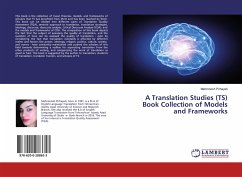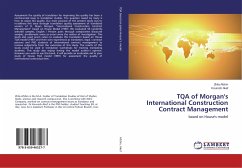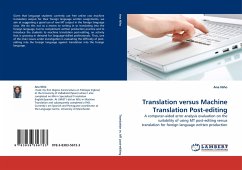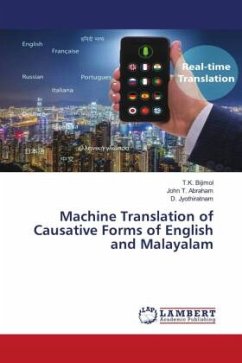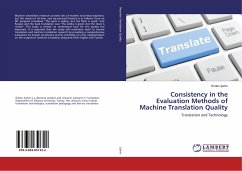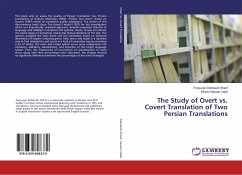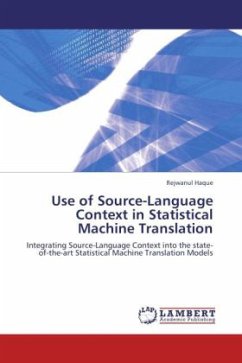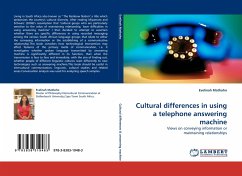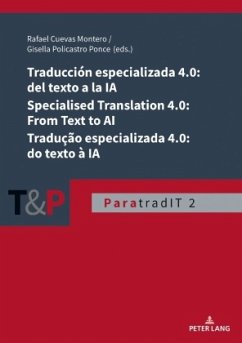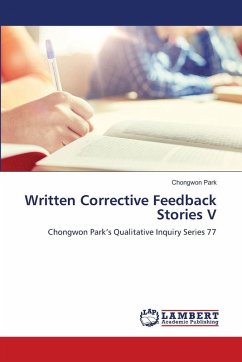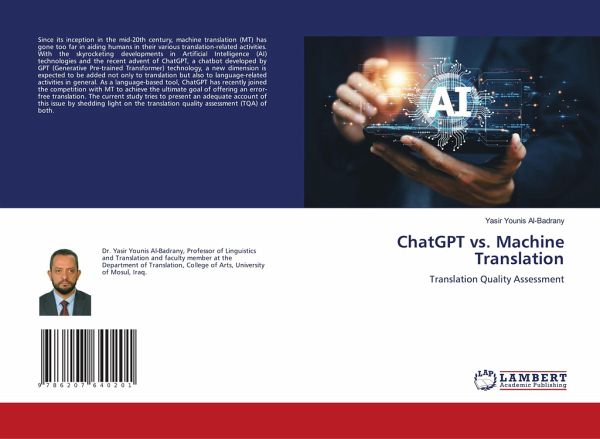
ChatGPT vs. Machine Translation
Translation Quality Assessment
Versandkostenfrei!
Versandfertig in 6-10 Tagen
29,99 €
inkl. MwSt.

PAYBACK Punkte
15 °P sammeln!
Since its inception in the mid-20th century, machine translation (MT) has gone too far in aiding humans in their various translation-related activities. With the skyrocketing developments in Artificial Intelligence (AI) technologies and the recent advent of ChatGPT, a chatbot developed by GPT (Generative Pre-trained Transformer) technology, a new dimension is expected to be added not only to translation but also to language-related activities in general. As a language-based tool, ChatGPT has recently joined the competition with MT to achieve the ultimate goal of offering an error-free translat...
Since its inception in the mid-20th century, machine translation (MT) has gone too far in aiding humans in their various translation-related activities. With the skyrocketing developments in Artificial Intelligence (AI) technologies and the recent advent of ChatGPT, a chatbot developed by GPT (Generative Pre-trained Transformer) technology, a new dimension is expected to be added not only to translation but also to language-related activities in general. As a language-based tool, ChatGPT has recently joined the competition with MT to achieve the ultimate goal of offering an error-free translation. The current study tries to present an adequate account of this issue by shedding light on the translation quality assessment (TQA) of both.





